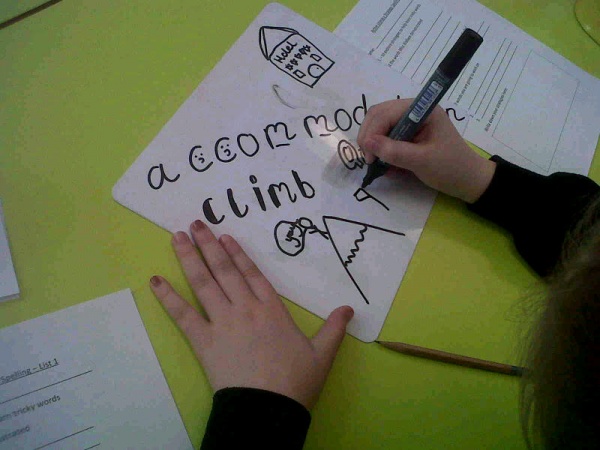 Caroline Cane, Probationer teacher at Nethermains is really excited to share this story from her P4 class:
Caroline Cane, Probationer teacher at Nethermains is really excited to share this story from her P4 class:
We were developing our understanding of a short text we watched online using our reading strategies.
First, we recorded everything we knew about treasure and put the word treasure into an extended sentence.
 Here is an example from one of our pupils:
Here is an example from one of our pupils:
‘Pirate Pete was on a mission to find the hidden treasure when he arrived on a small island because he found an old treasure map in his ship’.
We then worked as visualisers and drew what we thought the story was going to be about based on the still image that Mrs Cane showed us.
Next we discussed who the character was and why they were looking for treasure. We created our own questions for our shoulder partner to answer.
One of our pupils independently wrote a fantastic summary of the text and used some interesting vocabulary.







